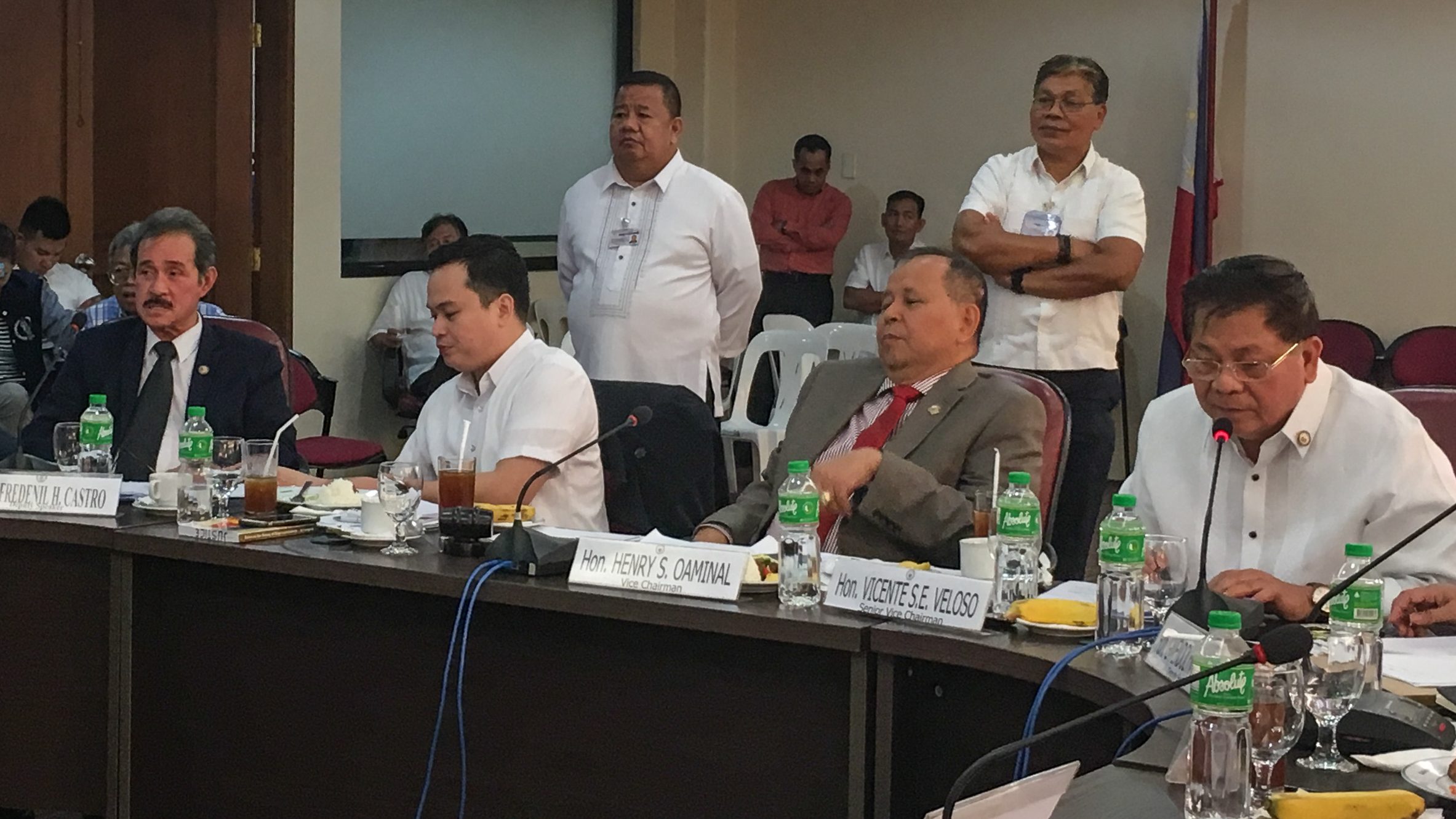SUMMARY
This is AI generated summarization, which may have errors. For context, always refer to the full article.

MANILA, Philippines – The House subcommittee on correctional reforms approved the bill strengthening the Juvenile Justice Act of 2006 to make children in conflict with the law (CICL) responsible for their actions, but also increase penalties for adults who used them to commit crime.
The same measure will retain 15 as the minimum age of criminal responsibility, contrary to President Rodrigo Duterte’s plan to have Congress lower the age. (READ: House subpanel to ditch proposal lowering criminal responsibility age)
A majority of the members of the subpanel voted in favor of the still unnumbered measure, with only Bayan Muna Representative Carlos Zarate abstaining from the vote.
The bill was the subject of 3 technical working group (TWG) meetings on February 1, 8, and 28, where lawmakers found a compromise among their colleagues initially seeking to lower the criminal responsibility age to either 12 or 9 years old and advocates for children’s rights.
“Considering that children do not have yet the full capacity to understand the extent and consequences of their actions, it seems harsh and unjust to judge them by the same standards society uses in judging the actions of adults,” said TWG head and Kabayan Representative Ron Salo.
Under the Juvenile Justice Act, 15- to 18-year-olds who commit crimes may be detained in youth centers and be put through rehabilitation programs. Those under 15 years old are exempted from criminal liability and undergo intervention. (READ: Children in conflict with the law: Cracks in Juvenile Justice Act)
In 2013, Republic Act 10630 was passed to amend the Juvenile Justice Act to allow children as young as 12 years old to be held criminally liable for serious crimes such as rape and murder, among others.
The law also mandates local government units (LGUs) to establish “houses of hope” or Bahay Pag-Asa to offer rehabilitation, diversion, and intervention. (READ: When ‘Houses of Hope’ fail children in conflict with the law)
But problems continue to plague the law, with the continued use of children to commit crimes, lack of funds, and poor to inhumane conditions in Bahay Pag-Asa facilities.
TWG member and Deputy Speaker Pia Cayetano said the amendments will now allow the state to “take over parental responsibility” in cases of CICL.
“The intention of the bill is to tell the parents, the children that no, you must be responsible for it… The law has been taken advantage of and [people have] been given the impression that it’s okay for these children to commit these petty crimes… That is not the intention [of the law], but that is the current situation,” said Cayetano.
Proposed amendments
Under the approved measure, CICL aged 15 and below will immediately undergo an intervention program and will no longer be given the option to be released after being held in custody.
The jurisdiction for running Bahay Pag-Asa facilities will be transferred from LGUs to the Department of Social Welfare and Development (DSWD).
The DSWD will also be tasked to create at least two agricultural camps and training facilities in Luzon, Visayas, and Mindanao for CICL to be sent by the courts to these camps.
The bill also seeks to reduce the sentence imposed by courts upon CICL. The penalty will be two degrees lower for crimes punishable under the Revised Penal Code.
The period of imprisonment will be halved for special laws violated, with a fixed period of jail time. Life imprisonment will also be lowered to detention up to 12 years.
The maximum age for suspended sentence will be extended, from the current 21 years old to 25 years old.
Penalties for parents and syndicates using children to commit crime will also increase. Any adult who uses a child to commit crime will be punished with reclusion temporal or 12 to 20 years in prison if the crime committed by the child is punishable with 6 years imprisonment or less.
The punishment for the adult will be reclusion perpetua or life imprisonment if the child is ordered to commit a crime punishable by more than 6 years.
Parents of CICL taken into custody will also be required to attend counseling and intervention. They will be penalized if they fail to attend sessions.
A portion of the bill also mandates the identification of accredited foster parents in the list of persons to whom CICL may be released after their community-based rehabilitation.
Now that the bill has been approved by the subcommittee, it will soon be transmitted to the mother committee, the justice panel, for approval. Should the justice committee approve the measure, the bill will then be sponsored for 2nd reading at the plenary. – Rappler.com
Add a comment
How does this make you feel?
There are no comments yet. Add your comment to start the conversation.